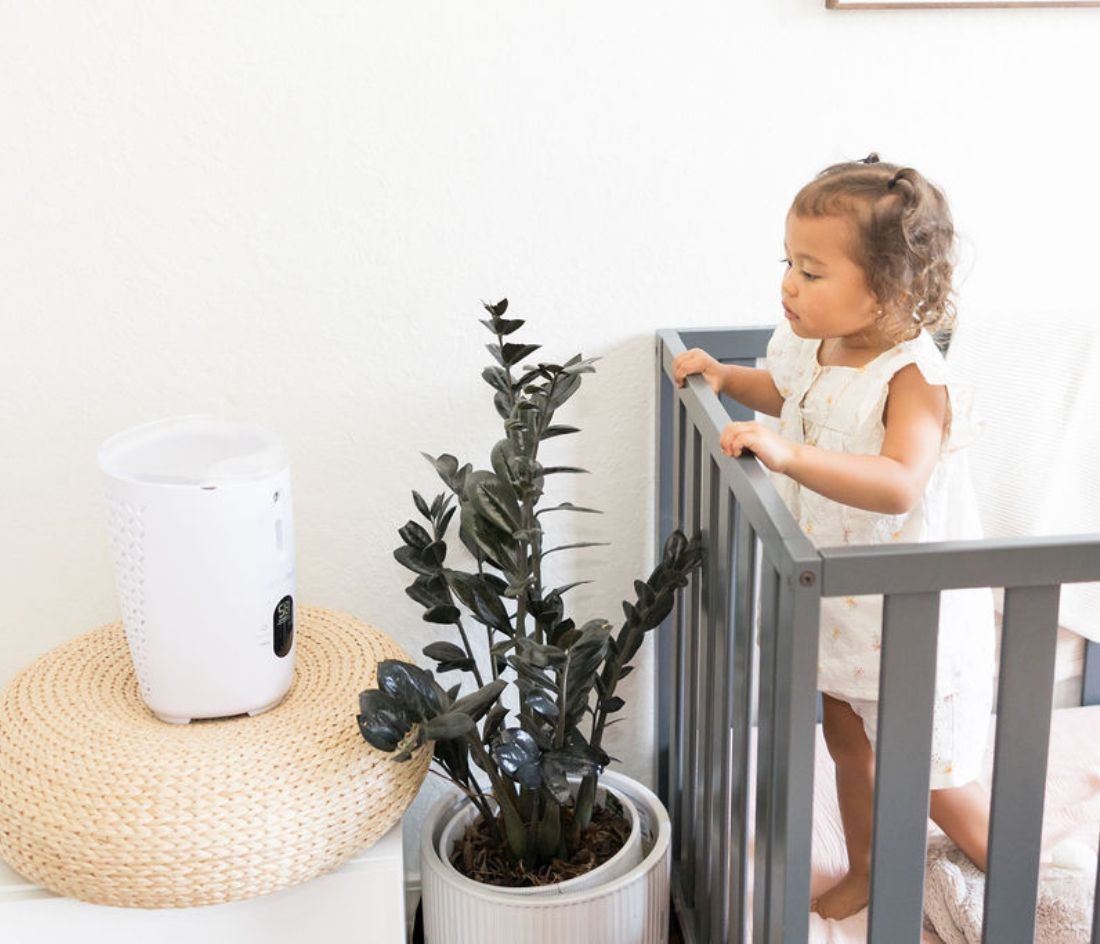Guest Post by Katy Fleming, MA, LPC, BSN, RN
Our unique characteristics as human beings lie in our DNA from eye color to height. This genetic material is stored in thread-like structures called chromosomes.
Down syndrome is a genetic disorder where a baby is born with an extra chromosome 21. This additional genetic material is associated with developmental delays, health problems, and physical features.

Does Down Syndrome Run in Families?
Although Down syndrome is a genetic condition, it is only inherited from family members in 1% of cases.
Is Down Syndrome Genetic?
Down syndrome is the most common chromosomal condition in the United States. When a loved one has this condition, you may wonder if others in the family will inherit this syndrome, as well.
Despite being a genetic condition, it is not usually passed down from other family members.
Babies are usually born with 46 chromosomes, half inherited by their mother and half by their father. For someone born with Down syndrome, there is an additional copy of chromosome 21.
Increasing your understanding of Down syndrome and implementing early intervention services greatly increases development and the overall quality of life.
Likelihood of Having a Child with Down Syndrome
Approximately 1 in every 700 babies are born with Down syndrome, which accounts for 6,000 babies in the United States each year.
The condition occurs in all types of people no matter their race, geographic location, or economic status. The risk for Down Syndrome is greater depending on the mother’s age.
Women age 35 or older have an increased chance of having a baby with Down Syndrome. For a 25-year-old female, the risk is 1 in 1,250. The occurrence significantly increases to 1 in 400 births by age 40.
Most born with Down syndrome have a mother younger than age 35, however, the majority of births occur with younger women.
Once a person has a child with Down syndrome, the chances of having a second child with the condition are 1 in 100 up until age 40.

Types of Down Syndrome
Learn the three different types of Down syndrome to increase your understanding of the genetic causes of this condition.
1. Trisomy 21
The majority of people with Down syndrome have Trisomy 21. An error in cell division results in each cell containing three copies of chromosome 21 rather than the typical two copies.
Trisomy is the medical term for having an extra chromosome. 95% of people with Down syndrome have Trisomy 21.
2. Mosaic Down Syndrome
The term mosaic means combination or mixture. In this type, some cells contain a third copy of chromosome 21, whereas others have the typical two copies.
Approximately 2% of people with Down syndrome have Mosaic type, which is the least common form.
3. Translocation Down Syndrome
This type of Down syndrome occurs when an extra chromosome 21 either partially or in full attaches to another chromosome. In many cases, it attaches to chromosome 14.
Translocation Down syndrome accounts for approximately 3% of cases. This type of Down syndrome can pass from parent to child, however, it only occurs in about 1% of cases.
Trisomy 21 and mosaic Down syndrome do not have a hereditary component and do not run in families.
Causes + Risk Factors
Down syndrome is caused by an error in cell division occurring in early fetal development.
It’s well known that this is a genetic condition caused by an extra chromosome, however, the medical community doesn’t know exactly why it occurs.
Maternal age is a risk factor for trisomy 21 and mosaic, however, it does not appear to play a role in the translocation form of Down syndrome.
If you have a child with Down syndrome, a genetic counselor can assist in determining the risk of having another child with the condition.

Want more info + tips? You’ll love these:
- What Parents Need to Know About Hand, Foot, and Mouth Disease
- Everything Parents Need to Know About Earwax
- What to Do If Your Child Gets Burned
- 5 Things Parents Need to Know About Strep Throat
- What Items to Have in Your Back-to-School Sick Day Kit
Each person with Down syndrome is a unique individual with varying abilities and characteristics.
Individuals with this condition can thrive in life including maintaining friendships and gaining employment.
As a licensed counselor and registered nurse, Katy approaches freelance writing with years of experience and a unique perspective. Alongside her partner, Katy loves to travel the world and embrace other cultures from volcanoes in Iceland to villages in India.
The Nozebot is a battery-powered suction device designed to clear nasal congestion in babies and children.



